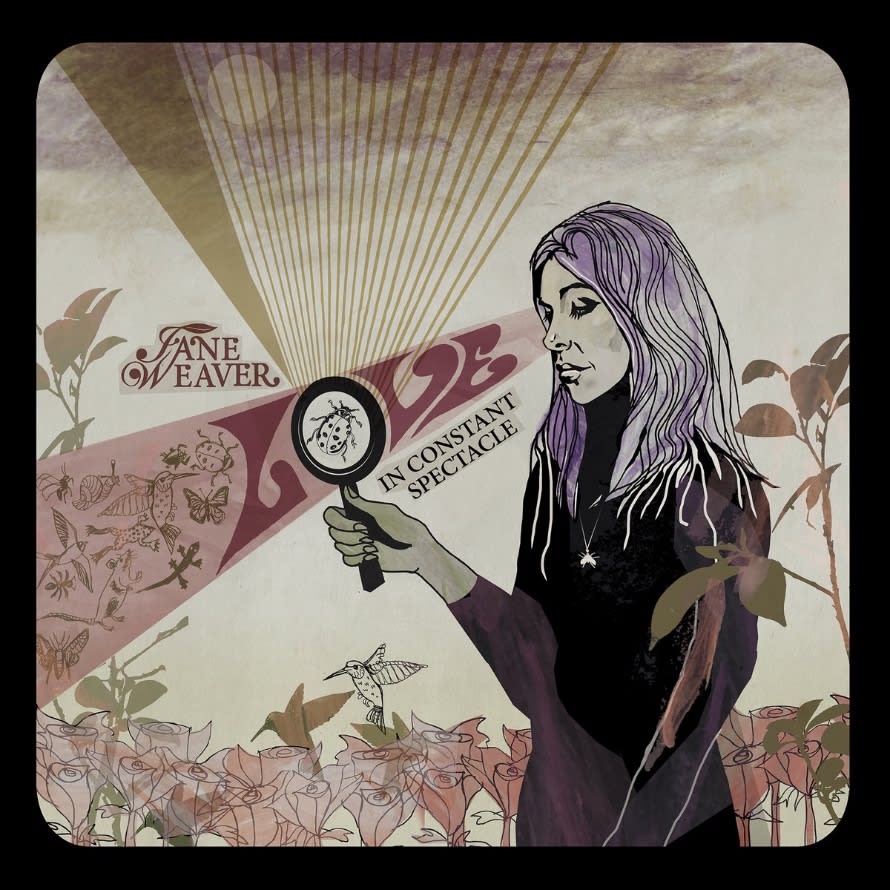Durability in most art fields involves finding elements that can withstand repetition and subjecting them to perpetual refinement and occasional reinvention. Jane Weaver's three decades in music have been marked by a few dead end paths before she, at the beginning of this century, put down a brand new cornerstone to build upon. Her solo work progressed from a kind of mystical progressive folk and gradually mutated from an acoustic space into one that embraced several decades worth of technology. One could say that Love in Constant Spectacle functions as a summary of sorts.
Weaver's last album, 2021's dance friendly Flock, maintained a kind of hermetic otherness within the hip-shaking context of very approachable music. Love in Constant Spectacle's focus is slightly more inward-facing, but Weaver still finds ways to create distance between intention and expression even when she herself is the topic. Subjecting her lyrics to a cut and paste session, she fed them into a few rounds of Google Translate before returning them to English. The results have a kind of softened specificity, fulfilling Weaver's desire to approximate the slight dislocation often found in foreign film subtitles.
Another kind of translation comes in the form of longtime PJ Harvey collaborator John Parish, who was hired to produce the album. His contributions are felt more in the shape than the sound of Love in Constant Spectacle. There is an economy of elements that eases Weaver's exploratory tendencies into pop songs without sacrificing any of her core identity. Lead single "Perfect Storm" recasts the loose artiness usually found in works by Cate Le Bon or Beak> into a compact bit of hypno-pop that warns about dangers that hide within a perhaps-too-perfect love. Parish also encourages moments of quiet, as on "Motif," which features only voice, acoustic guitar and lived-in advice: "Don't try to be the light / See the light."
The pressure that Parish and Weaver apply to these songs create glittering and somewhat unexpected gems — the title track suggests an alternate reality where Kate Bush fronts a '90s dream pop band, while "Happiness in Proximity" features the kind of shuffling loops that define Weaver's recent sound but held within is a rustic psychedelia that harkens to her earlier albums.
Love in Constant Spectacle features all of Weaver's strengths and none of her (very few) weaknesses. There's a kind of magical play here that conceals the emotional weight the album continuously heaves skyward, any evidence of the effort smoothed out in the subtitles.
